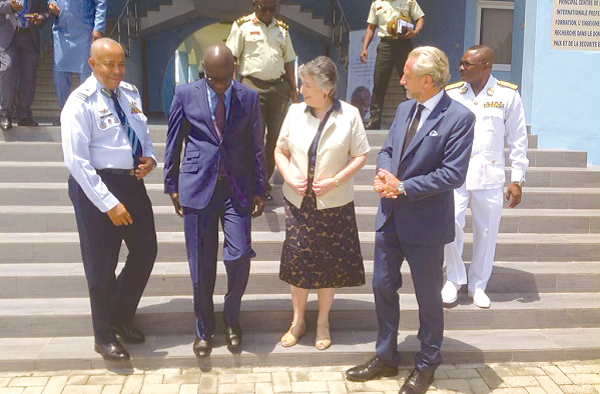
Protect civilians from conflict, atrocity African leaders urged
The Special Advisor to the UN Secretary-General on the Prevention of Genocide, Mr Adama Dieng, has called on African leaders to take concrete measures to prevent conflict and atrocity being meted to the civilian population.
He said African leaders must demonstrate true responsibility to protect the populations from genocide, war crimes, ethnic cleansing and crimes against humanity.
To curb abuses against women, children and the vulnerable, leaders on the continent must also ididentify early warnings of conflict and take early actions, he added.
Irreversible damage
Speaking at the sixth edition of the Kofi Annan-Dag Hammarskjold annual lecture in Accra , Mr Dieng said "Prevention is better than response because once we are in crisis response mode, many doors to action are closed and the damage done can be irreversible or takes decades to resolve.”
The lecture, held on the theme "Preventing Armed Conflicts: Identifying and Mitigating Risks" brought together top security personnel and security experts to engage in a high level round table discussion to peace and security and how to curb conflicts on the African continent, and the world.
Primary responsibility
Mr Dieng stressed that prevention of conflicts and the protection of populations from atrocity and crimes remained a primary responsibility of African member states.
He stated that in the World Summit Outcome Document in 2005, the UN member states reaffirmed their responsibility to protect the population from genocide, war crimes, ethnic cleansing and crimes against humanity as well as their incitement.
He credited the African Union, under its Constitutive Act, for developing early warning mechanisms with a requisite legal framework.
"This legal framework, if put into practice goes way ahead of the UN to prevent armed conflicts," he said, extolling ECOWAS for being one of the successful sub-regional orgsnisations that had taken timely and decisive response to risks of armed conflicts in Côte d'Ivoire, Liberia, Mali and The Gambia.
Respect human rights
He reminded African states that meaningful prevention of conflicts could not be undertaken without respect for human rights and fundamental freedoms universally recognised and guaranteed by the International Bill of Rights and other international and regional instruments.
The Executive of the Dag Hammarskjold Foundation, Mr Henrik Hammargren called on UN member states to protect the weak against the strong in order to build and sustain peace at the regional, national and international levels, saying "conflict prevention must be at the core of peace efforts."
Offer better opportunities
The Commandant of the Kofi Annan International Peacekeeping Training Centre, Air Vice Marshall Griffiths S. Evans, said in spite of its natural resource endowments and very youthful population, the African continent was still poor in the midst of plenty, losing its influence in international politics due to deficits of peace, governance and development.
He, therefore, called for the African population to be offered better life opportunities to enable them to feel safe and be part of the "change we desire" by tackling the root causes of conflicts.